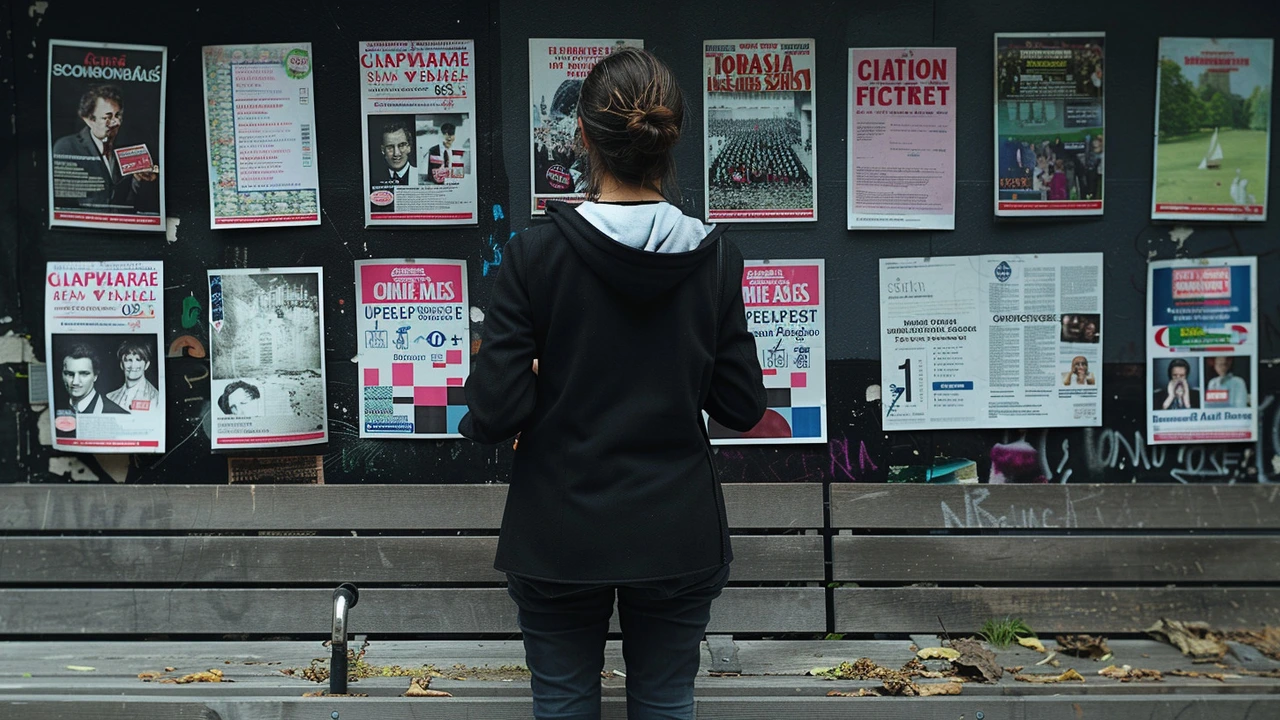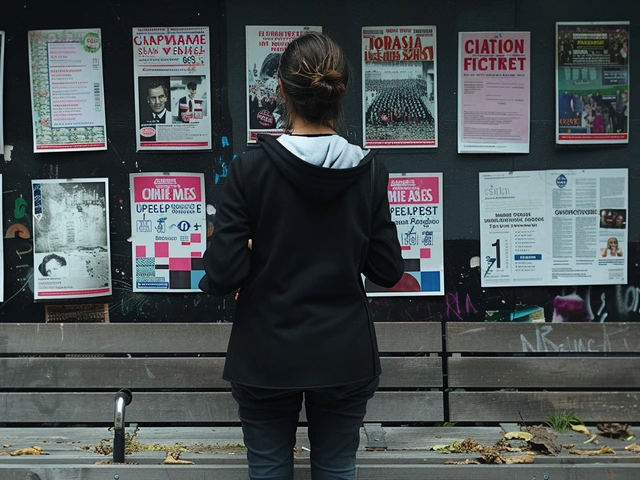Introduction
France's recent parliamentary elections have underscored a dramatic shift in the nation’s political dynamics, with the far-right National Rally making substantial inroads. The initial round of voting has spurred left-wing and centrist parties into action, urging them to coalesce against a common adversary. As the political landscape reshapes, the reactions from various factions and potential outcomes hold significant implications for the future governance of France.
The Surge of the National Rally
In the first round of parliamentary elections, the National Rally and its allies secured an impressive 33.1% of the votes, as reported by the French Interior Ministry. This surge paints a vivid picture of a nation grappling with deep-seated political divides and a growing appetite for far-right policies. This performance has not only surprised many political analysts but also sent ripples through the French political establishment.
Marine Le Pen's National Rally has capitalized on concerns over immigration, national sovereignty, and economic stability, presenting itself as a robust alternative to the established political order. This narrative has found resonance among a significant segment of the electorate, particularly in rural and economically depressed regions.

Immediate Reactions and Strategic Voting
Faced with the National Rally’s ascendancy, left-wing and centrist parties have embarked on a frantic pursuit to forestall their potential victory. Prime Minister Gabriel Attal emphasized the paramount urgency of this endeavor, underscoring the threats posed to democratic values and social cohesion should the far-right secure an absolute majority in the National Assembly.
To avert such an outcome, discussions around strategic voting and alliances have gained momentum. Leftist coalitions such as the New Popular (NFP) alliance, which garnered 28% of the vote, alongside President Macron’s centrist Together bloc, which secured 20%, are exploring avenues for cooperation. This involves calls for third-place candidates to voluntarily withdraw from certain constituencies to prevent splitting the anti-far-right vote, thereby enhancing the chances of defeating National Rally candidates.
Formation of Republican Fronts
The concept of a ‘Republican Front’—a united front of diverse political forces against a far-right adversary—has been a recurring theme in French politics. This strategy entails tactical withdrawals and endorsements aimed at consolidating votes against National Rally contenders. Despite these efforts, the efficacy of such fronts remains uncertain, contingent on voter turnout and the public’s adherence to tactical voting recommendations.
Challenging Political Dynamics
The complexities of French electoral mechanics complicate these strategic engagements. The two-round system, requiring parties to secure at least 12.5% of votes in a constituency to advance, necessitates intricate calculations and negotiations. The permutations of potential alliances, voting strategies, and voter sentiment contribute to an unpredictable electoral environment.
Potential Election Outcomes
Analysts have delineated three primary scenarios regarding the eventual outcome of the parliamentary elections: a far-right majority, a hung assembly, or a coalition involving the far right. Each scenario carries distinct implications for French politics and governance.
Far-Right Majority
Should the National Rally manage to secure an outright majority, it would represent an unprecedented shift in French politics. The far-right’s ascendancy to such a dominant position could herald significant policy changes, particularly in areas such as immigration, national security, and France’s role in the European Union. This prospect has galvanized opposition parties to intensify their efforts to thwart such an outcome.
Hung Parliament
The most probable scenario, a hung parliament, would mean that no single faction holds a decisive majority. This would necessitate coalition governments and considerable negotiations to pass legislation. While such a scenario might drive cross-party cooperation and compromise, it also poses risks of governmental inertia and policy gridlock. The balance between facilitating efficient governance and maintaining a coherent policy direction would be a delicate one.
Coalition Involving the Far Right
Another potential outcome is the formation of a governing coalition involving the National Rally. This could occur if no clear majority emerges, and alliances are formed based on shared policy interests. Such a coalition would undoubtedly face scrutiny and resistance from more centrist and leftist elements, both within France and internationally. The implications for France’s domestic and foreign policies would be profound and potentially contentious.

The Role of Voter Turnout and Tactical Voting
As the election moves into its final round, several factors will significantly influence the outcome. Voter turnout is a critical determinant, with fluctuations potentially swaying results in closely contested constituencies. High turnout tends to benefit traditional parties, reflecting a broader engagement from the electorate. Conversely, low turnout often favors parties with highly motivated bases, such as the National Rally.
Tactical voting, wherein voters cast their ballots to block a less favored candidate rather than support their preferred choice, will also play a decisive role. The ability of left-wing and centrist factions to mobilize and coordinate this strategy efficiently will be pivotal in countering the National Rally’s momentum.
Conclusion
France stands at a critical juncture, confronting a potent challenge from the far-right and the necessity for cross-spectrum alliances to preserve democratic integrity. As the political chessboard is set for the final round, the stakes are incredibly high. The outcome of these elections could redefine France’s political landscape, with reverberations felt far beyond its borders. Voter turnout, tactical voting, and strategic alliances will collectively shape the path forward, illustrating the complexities and dynamism inherent in democratic processes.



Leave a Comments